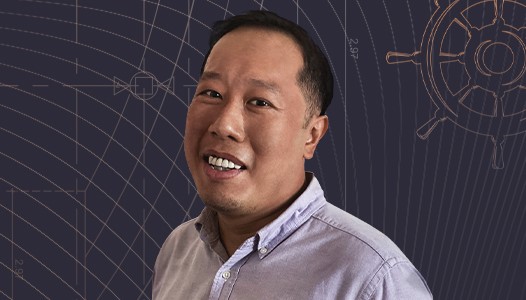
How an inheritance can ensure your children are empowered but not entitled
Do you have a wealth planning strategy that takes your family vision into account and encourages your children to achieve on their own? Andrea Hernandez of Equiom explores how you can pass on your wealth and wisdom through your approach to family inheritance and establishing a trust.
As natural historian Sir David Attenborough once said, “No one will protect what they don't care about, and no one will care about what they have never experienced.”
Attenborough’s reference was, of course, to the natural habitat, but in wealth planning terms, it still rings true. There’s less incentive to protect wealth that was not hard earned, and often insufficient planning for a future we’ve not yet reached.
It is human nature to want more and better for ourselves and our descendants, and this need for wealth protection for future generations comes as part of a natural desire for legacy. We all wish to leave something behind for our next generation. It is a gesture of love and goodwill, and how we want to be remembered.
Setting up the next generation for success
When it comes to passing on wealth to future generations, it is often feared that hard-earned assets will not be wisely utilised and will somehow be taken for granted. Parents want their children to thrive and to do so in their own way, but in a sensible and responsible manner.
It is usual for parents to consider carefully how to provide their children with a strong financial security without spoiling them in the process. Thoughtful succession planning ensures that the next generation values and appreciates what has been given. Or, it ensures they earn what they have been entitled to and empowers them to make use of these resources for the good of themselves and society.
But how can parents today contribute to their children’s own values and success, and make their wealth accessible to their children with the right level of protection? Historically, trust structures have offered a solution to this question. A trust structure doesn't grow old and if anything, only changes and evolves to match current needs.

Establishing a trust
A trust provides a set of hands to hold and manage assets for the benefit of the appointed beneficiaries. Its flexibility allows customisation and personalisation of the assets managed, according to unique family needs.
A trust is created by a settlor: the person who transfers ownership of assets to a third party — the trust — which is administered by a trustee for the beneficiaries. As the assets are no longer in the settlor’s possession, they don't pass to their estate upon death — this opens advantageous opportunities for tax planning, along with helping with the transfer of wealth.
In essence, the word “trustee” means one who can be trusted, hence the importance for trustees to have a deep understanding of the settlor’s wishes. It is essential for the trustee to have a full understanding of the beliefs, desires and morals of the settlor, and what they expect to be done with their wealth once they pass away. This informs the trustee’s decision-making process when distributing the trust assets to the beneficiaries.
But the benefits of a trust structure are not only for the settlor — they extend to the beneficiaries. Trustees must closely follow the changes of beneficiaries’ circumstances. For example, beneficiaries who are minors at the outset but decide to settle in a different jurisdiction as adults may require further cross-border planning that professional trustees are ready to offer.
In this scenario, trustees can arrange an appropriate structure that allows wealth to be preserved and provides the beneficiaries with the means and access to the funds when it is necessary and in a tax-efficient manner. Ultimately, every trustee has a duty to cater for what is best for the beneficiaries.
When a trust makes a difference
This particular case illustrates the value a trust provides in estate planning: it involves a family trust settled by a mother, for the benefit of her husband and all her children. The children were divided in three categories: category A, with the one and only surviving child from her first marriage, (let’s call him Mr BA); category B, compromising the four children from her second marriage; and category C, with some individuals from her extended family.
All beneficiaries were adults, located around the world. In her letter of wishes there were specific instructions detailing how the mother preferred the trustee to provide for distributions. It was clear that her intention was to favour all her children under category A and B equally, and those in category C only in case of extreme need. In 2014, the mother sadly passed away. Not long after, we received a message from Mr BA requesting that the trustee transfer the entire trust fund and all assets under his name absolutely and to terminate the trust immediately. When asked the reason why, his answer was “because now that my mother has passed away, the trust doesn’t make sense any more”.
However, this is when a trust provides the utmost benefit. Before enabling any distribution, the trustee needed first to consider all the beneficiaries. A series of meetings and discussions took effect, all guided by the settlor’s previously determined wishes. Despite needing to reject Mr BA’s request, the trustee could at the end proceed with an equitable distribution, in an expedited manner.
Not having a trust in place for this family could have led to a prolonged legal procedure in court and significant damage to the family relationship along with the dispute.
The creation of a trust is just one of many strategies when it comes to estate planning for asset and wealth protection, but there are other instruments that can play a part such as life insurance, wills, or powers of attorney. With a well-designed plan using one or a combination of tools, you can accomplish your vision of how your wealth is passed on to the next generation. As Opus by Prudential’s value-added services partner, Equiom has highly highly experienced professionals and an extensive network of intermediaries, ready to assist and advise as you embark on your estate planning journey.
This article was prepared by Equiom. Prudential does not represent that this information is accurate or complete and should not be relied upon as such.This article been carefully prepared, but it has been written in general terms and should be seen as broad guidance only. The article cannot be relied upon to cover specific situations and you should not act, or refrain from acting, upon the information contained therein without obtaining specific professional advice. Please contact Equiom to discuss these matters in the context of your particular circumstance. Equiom Group, its partners, employees and agents do not accept or assume any liability or duty of care for any loss arising from any action taken or not taken by anyone in reliance on the information in this article or for any decision based on it.
For information on the regulatory status of our companies, please visit www.equiomgroup.com/regulatory


